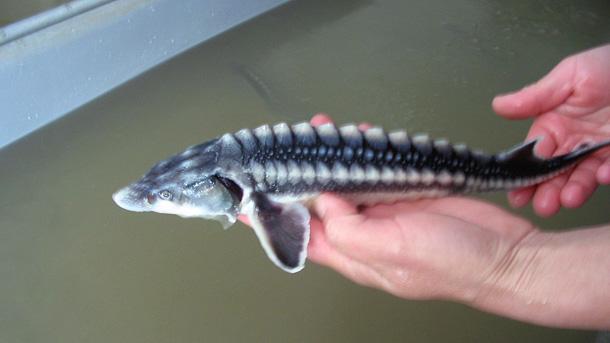When problems remain away from the attention of people, finding a solution is a difficult task. Awareness is needed in order to solve them. This philosophy is a basis for the WWF project that aims to inform society, fishermen and authorities about the risk of extinction of sturgeon fish in the Bulgarian part of the Danube. Among the main threats to the ancient fish are extensive fishing and illegal trade in caviar.
Sturgeon appeared on Earth before the dinosaurs but now they are threatened by extinction and can be found in two relatively small basins - the Caspian and the Black Sea. The lower Danube is the only place where the Black Sea sturgeon comes to spawn. Hence the important task of Bulgaria and Romania to protect this last habitat, giving life and future to the most ancient fish. Several years ago, the two countries imposed a moratorium until 2015 on sturgeon fishing in the river. However, monitoring of its implementation and preventing illegal caviar trade is proving to be quite a specific and difficult task.

Ivan Hristov, project manager of WWF, told Radio Bulgaria about complexity of border control in this respect.
"On one hand control requires a good understanding of this specific legislation and on the other - the ability to distinguish between wild species and to know illegal from legal trade in caviar. The line is sometimes very thin. One needs to have very good knowledge of the requirements for packaging and labeling of products, as well as the accompanying documentation. That is why we organize these meetings to exchange experience with the best experts in the world."
In the few years since the moratorium on sturgeon fishing in the Lower Danube was imposed, no cases of poaching were registered. But that does not mean that the prohibition works.
"During the past 2 years the Executive Agency for Fisheries and Aquaculture found in the river special nets used for catching sturgeon. This suggests that poaching continues to exist. No cases of illegal trafficking of caviar were registered in this country. Two or three years ago in a foreign country caviar from wild Caspian sturgeon was seized, bearing label of a Bulgarian manufacturer of cultured sturgeon. All this shows that the authorities should be very wary for this kind of trafficking. "
Sturgeon fish have a rich past, and their future depends on us, said in Sofia a WWF expert. Bulgaria and Romania are the only EU countries where wild populations of the fish are still found in their waters.
English version: Alexander Markov
The Bulgarian folk dance group Bulgaria , which is based in central England, came second at an international dance festival in Wales with 93 points. The group narrowly missed the top spot, which went once again to the favourites from Northern Ireland,..
Lectures in the Bulgarian language, as well as seminars on translation, discussions about new trends in contemporary Bulgarian literature and culture, traditions, folklore, and encounters with today’s Bulgarian cinema — all of this is part of the..
Today, Bulgarian society is largely unaware of the existence of the Bulgarian community in Albania and Kosovo, or of their activities. The book Bulgarian Communities in Albania and Kosovo. Social and Political Processes and Demographic Consequences..
It is exactly 100 years this year since the Mount Rila celebrations took place for the first time. Rila is the mountain where some of the longest and..
The Ministry of Tourism is once again organizing Bulgaria’s presentation at the World Travel Market in London. At the 45 th edition of the event,..
The Rhodope Mountain is pure magic to anyone who has ever laid eyes on the its scenic views or has ever heard any of the legends about it. August 4-10..

+359 2 9336 661
